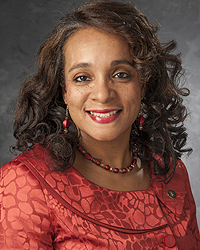I have three things to say about this.
The new campuses to be renamed, joining four others approved on split votes in January, are Albert Sidney Johnston and Sidney Lanier middle schools and Jefferson Davis High School. Johnston was a high-ranking Confederate general, Lanier was a Confederate soldier and poet, and Davis was president of the Confederacy.
Nearly all the votes were along racial lines, with the black and Hispanic board members voting in favor of the name changes.
Committees at each school now are charged with proposing new names by May.
Supportive of the changes, James Douglas, president of the NAACP of Houston, told the school board about a recent conversation he had with a younger African-American about the Confederacy and the naming debate.
“Where would you be today if they had won?” Douglas asked. “I said, ‘Do you feel proud having to go into a school that honors a person who intended to keep you in slavery?'”
A few dozen speakers – parents, students and community members – expressed mixed views. Some agreed the names sent the wrong message, while those supportive of keeping Lanier’s name said he was a young, low-level soldier who redeemed himself as a writer. Others questioned the price tag as the district faces a projected $107 million budget shortfall.
Renaming all eight campuses – Reagan High School is expected to come before the board again – would cost an estimated $2 million, based on district figures.
“I’ll take dignity over dollars,” said trustee Rhonda Skillern-Jones, who led the effort last year to change the district’s policy to allow the board to order renaming. The move followed the shooting deaths last June at a historic black church in Charleston, S.C.
See here for the background. My thoughts:
1. As I’ve said before, having something named after you – school, street, park, whatever – is a privilege, not a right. Names may change to reflect changing sentiments, populations, priorities, something else. Having something renamed doesn’t necessarily mean we no longer like or approve of the person for whom it had been named before. It may just mean it was time for a change.
2. That said, I have zero sympathy for anyone associated with the Confederacy. Maybe it’s just the Yankee in me, but people who took up arms against the United States are in no way worthy of honor. Renaming a school that had borne the moniker of a Confederate figure doesn’t mean we’re “burying” our history – frankly, the discussion we’ve had this past year about who we have named various things after and why those names were chosen, especially at that time, has been more illuminating of our history than any class I’ve ever taken – it means we’re renaming a school.
3. And having said that, I do have sympathy for those who have tried to draw a distinction between the likes of Sidney Lanier, who was a soldier but not a leader in the Confederacy and who came to be known for much more than his time in the Confederate army, and the likes of Jefferson Davis and Robert E. Lee. Perhaps part of the issue here is that the discussion we haven’t had is what our standards are for naming (in this case) schools after various figures, and what the disqualifying factors may be. Among other things, that may force us to come to terms with other people who have highly questionable legacies but were not a part of this discussion, such as Mirabeau Lamar. I doubt there’s an objective standard that we could use, and even if there were I’m sure there would still be cases that would generate controversy, but this would at least address the criticism that the HISD Board has acted in a haphazard manner.


“Haphazard manner” is indeed a concern. What should we do about naming things after the person who said this about homosexuality?
Question: “I am a boy, but I feel about boys the way I ought to feel about girls. I don’t want my parents to know about me. What can I do? Is there any place where I can go for help?”
Answer: “Your problem is not at all an uncommon one. However, it does require careful attention. The type of feeling that you have toward boys is probably not an innate tendency, but something that has been culturally acquired. Your reasons for adopting this habit have now been consciously suppressed or unconsciously repressed. Therefore, it is necessary to deal with this problem by getting back to some of the experiences and circumstances that lead to the habit. In order to do this I would suggest that you see a good psychiatrist who can assist you in bringing to the forefront of conscience all of those experiences and circumstances that lead to the habit. You are already on the right road toward a solution, since you honestly recognise the problem and have a desire to solve it.”